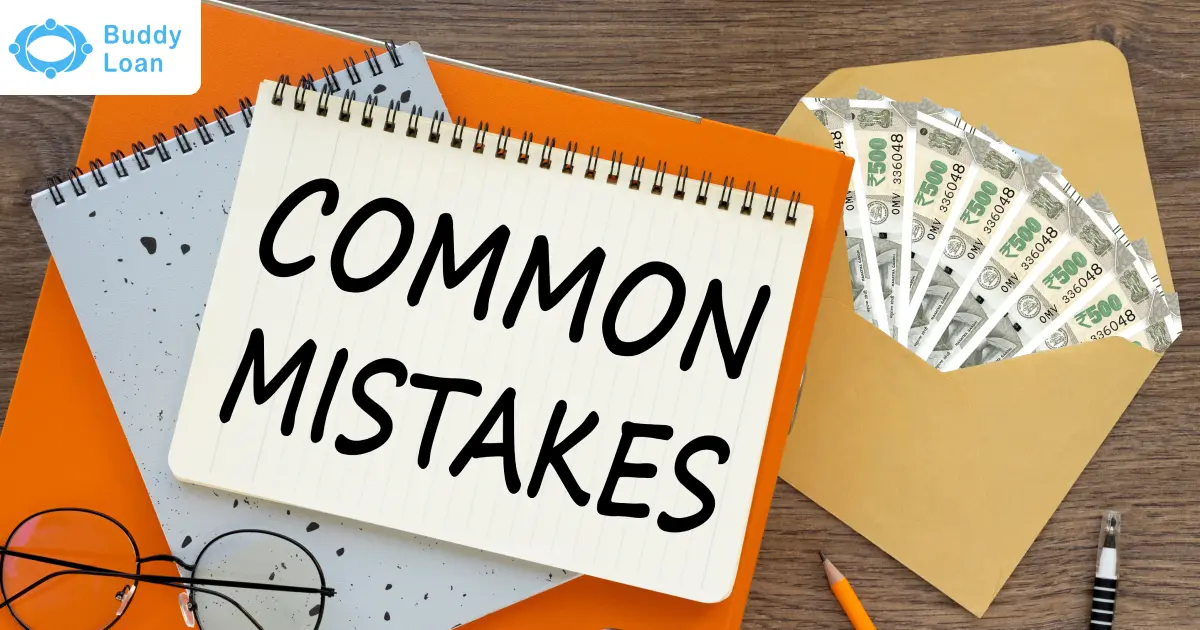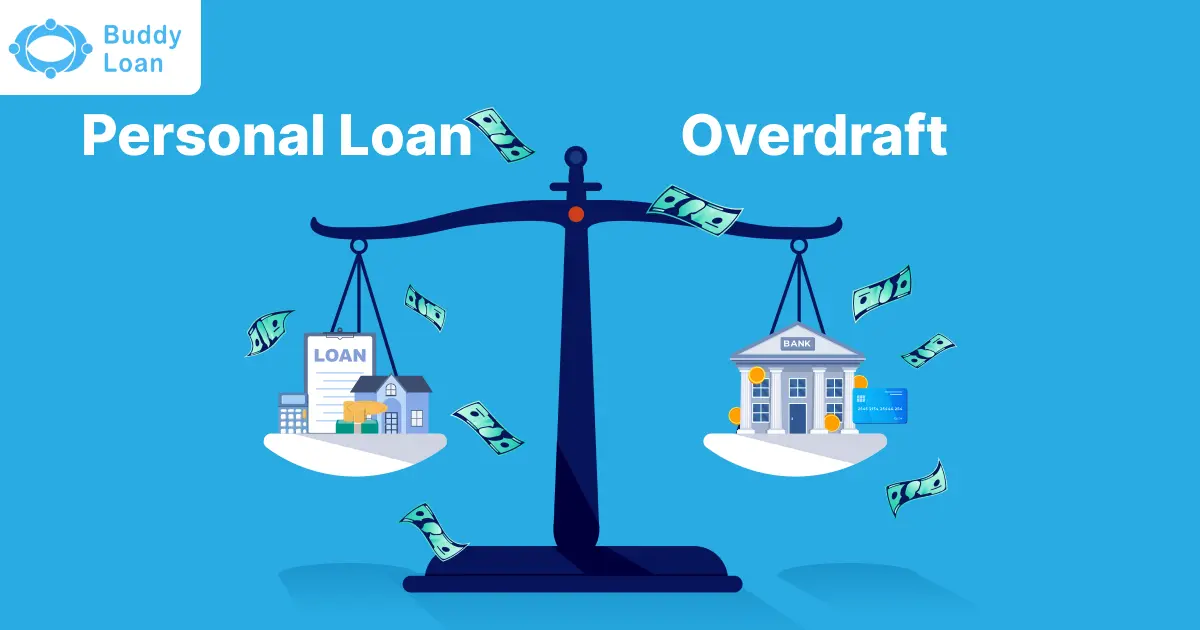Mastering the art of skillful negotiation to secure favorable Tips for Personal Loan Interest Rates on Personal Loan Interest Rates presents a formidable challenge. However, when executed with finesse, this invaluable technique has the potential to safeguard you against excessive interest and onerous fees, thereby enabling substantial savings.
To help you negotiate the best possible terms and rates on your personal loan interest rates, refer to the following for better understanding,
- Research various loan providers: Compare rates and terms to find the best deal for you.
- Know your credit score: Your credit score determines the interest rate for your loan. Once you have a thorough idea about it, you can understand what kind of rate you can expect from the lender.
- Shop Around: Don’t settle for the first lender or bank that offers you a loan. Look for more options and compare lenders to find better terms, rates, and lower fees for your loan, etc.
First of all, master the art of securing favorable terms with this write-up. Additionally, the article explores various lenders, negotiating rates, and leveraging collateral for lower interest. So, keep on reading!
Comparison of Interest Rates of 15 Unique Lenders
| Lenders | Interest Rates |
| CASHe | 30% p.a. |
| PaySense | 14% p.a. onwards |
| Kreditbee | 15% p.a. |
| EarlySalary | 24% to 30% p.a. |
| RupeeRedee | 36% to 48% p.a. |
| mPokket | 24% p.a. |
| Upwards | 1.5% per month onwards |
| MoneyTap | 13-24.03% |
| Muthoot Finance | 14.50% |
| Axis Bank | 12% p.a.- 21% p.a. |
| SBI | 10.65% p.a. – 13.65% p.a. |
| IDFC | 10.49% p.a. onwards |
| ICICI | 10.75% p.a. – 19.00% p.a. |
| Induslnd Bank | 10.49% p.a. – 26.5% p.a. |
| CITI | 10.50% – 16.49% p.a. |
However, there are factors that you should consider if you want to enjoy a fruitful negotiation of personal loan interest rates, for instance: credit score.
How to Improve Your Credit Score?
Here are some result-driven tips on how to gain a good credit score:
Pay your bills on time:- Additionally, consistently making timely payments is crucial for improving your credit score. Therefore, it is important to set up automatic payments or reminders to ensure you never miss a due date.
Reduce credit card balances:- Aim to keep your balances low, ideally below 30% of your available credit limit.
Avoid opening new accounts unnecessarily:- Opening multiple new accounts within a short period can negatively affect your credit score. Only apply for new credit when necessary and carefully consider the potential impact.
Review your credit report:- Additionally, be sure to review your credit report frequently to identify any discrepancies that may impact your score. Subsequently, if you find any inaccuracies, promptly dispute the information to ensure its correction.
Maintain a diverse credit mix:- Having a mix of credit types, such as credit cards, loans, and a mortgage, can demonstrate your ability to manage different forms of credit responsibly.
Keep old accounts open:- Closing old accounts shortens your credit history, which can lower your credit score. Unless there are compelling reasons to close an account, consider keeping it open to maintain a longer credit history.
Use credit responsibly:- Demonstrating responsible credit usage is key. Avoid maxing out credit cards or applying for multiple loans simultaneously. Use credit sparingly and responsibly.
Limit new credit applications:- Each time you apply for new credit, it can result in a hard inquiry on your credit report, temporarily lowering your score. Be selective and strategic when applying for new credit cards.
Be patient and consistent:- Additionally, building a good credit score takes time and consistent positive behavior. Furthermore, stay committed to responsible credit management habits. Consequently, over time, you’ll see improvements in your credit score.
Remember, reaching a credit score of 750 takes time and is gradual. But, by following these tips and maintaining responsible credit habits, you can steadily enhance your creditworthiness and enjoy the benefits of a higher credit score.
Documents Required

Prepare for successful negotiation by gathering essential documentation. For instance,
- Proof of income: Provide recent pay stubs, tax returns, or any other relevant documentation that verifies your income and employment status.
- Bank statements: Gather several months’ worth of bank statements to demonstrate your financial stability and ability to manage funds.
- Identification documents: Have your government-issued ID, such as a driver’s license or passport, readily available for verification purposes.
- Residential proof: Gather documents that prove your current address, such as utility bills or rental agreements.
- Debt information: Prepare a list of your existing debts, including credit card balances, loans, and other financial obligations.
- Employment details: Include information about your current employer, job title, and duration of employment.
- Asset information: Gather relevant documentation to showcase your financial standing if you have valuable assets like property or investments.
How to Negotiate Loan Terms?
Negotiating loan terms is a crucial step in securing better terms on personal loan interest rates. Here are some key strategies to employ during the negotiation process:
- Be confident and assertive when discussing terms with the lender. Express your needs and expectations clearly and professionally. Confidence can help create a favorable impression and demonstrate that you are knowledgeable about the instant personal loan
- Firstly, inquire about the flexibility in repayment options. Additionally, discuss the possibility of adjusting the repayment schedule to better suit your financial situation. Moreover, some lenders may offer options like bi-weekly or monthly payments, or even the ability to make additional payments without penalties. Finally, flexibility in repayment terms can provide more control over your loan and enhance your ability to manage it effectively.
- Ask the lender about any available discounts. Some lenders offer incentives or discounts for certain qualifications such as setting up automatic payments or maintaining a good payment history. Additionally, these discounts can potentially lower the interest rate or reduce fees associated with the loan. Don’t hesitate to inquire about these opportunities and leverage them to your advantage.
- Consider requesting a lower interest rate based on your creditworthiness and market rates. If you have a strong credit history and the market rates have decreased since your initial research, it is worth discussing the possibility of a lower interest rate. Present your creditworthiness as a responsible borrower and provide evidence of current market rates to support your request.
Consider Secure or Co-Signed Options
Explore secure options by offering collateral or involving a co-signer to potentially secure better terms and rates on a personal loan.
- Offer collateral for lower interest: Providing collateral, such as property or savings, can help secure a personal loan at a reduced interest rate.
- Consider a co-signer: Having a co-signer with a strong credit history increases your chances of obtaining better terms and rates on a loan.
- Evaluate risks and communicate: Assess the potential risks involved and maintain clear communication with the co-signer throughout the process.
- Discuss the impact on the co-signers credit: Understand that the cosigner’s credit will be affected by your loan, and discuss the implications openly.
- Understand obligations and seek advice: Familiarize yourself with the obligations and responsibilities associated with co-signed loans and consider consulting a financial advisor for guidance.
How to Leverage Competing Offers?

Additionally, consider your financial situation and how each loan option will impact it. Moreover, take into account any potential hidden fees or penalties. Lastly, make an informed decision based on all of these factors. Finally, use them to negotiate better terms and rates for your personal loan.
- Obtain multiple loan offers from different lenders.
- Compare terms, interest rates, and fees to identify the most favorable options.
- Inform each lender about competing offers and ask if they can match or improve upon them.
- Highlight your strong creditworthiness and financial stability during negotiations.
- Be prepared to negotiate with lenders who are interested in securing your business.
- Use competing offers as leverage to negotiate better terms and rates.
- Consider factors beyond interest rates, such as repayment flexibility and customer service, when assessing the overall value of each offer.
0
Bad
Check your Credit Score for Free
Your credit score is updated monthly and gives you insight into your creditworthiness. Take control of your financial future today.
How to Walk Away from a Personal Loan Offer?
If the loan terms you’re being offered are too expensive or just don’t meet your needs, it may be time to look elsewhere. Before agreeing to anything, make sure the loan fits into your budget and that the interest rate and repayment terms make financial sense to you.
If the lender isn’t willing to work with you, it makes sense to look for a better deal elsewhere. It’s important not to lock yourself into an agreement that won’t benefit you in the long run. Here are some tips on how best to leverage competing offers:
- Ask each lender for a list of their loan products and compare them side-by-side.
- Pay close attention to requirements like credit score minimums, fees related to early repayment or prepayment penalties, as well as the total cost of borrowing (interest rates and associated fees).
- Make sure all applications include information about any competing offers so lenders have the incentive to provide a better rate or more favorable terms when reviewing your application.
Conclusion
In the quest for better terms and rates on a personal loan, effective negotiation is now easy with Buddy Loan. Additionally, customers can now confidently seek out the best deals and secure their financial future.
Additionally, their user-friendly platform and dedicated customer service make the process even more convenient. Plus, their flexible repayment options ensure that you find a plan that suits your financial needs.
First, research and prepare thoroughly for your loan agreement. Additionally, negotiate assertively to ensure the terms align with your financial goals. Furthermore, explore alternative options to find the best fit for your needs. Moreover, use competing offers to your advantage in the negotiation process. Finally, be ready to walk away from unfavorable deals if necessary.
Having any queries? Do reach us at info@buddyloan.com
Frequently Asked Questions
Q. How can I negotiate a lower interest rate on my personal loan?
A. To negotiate a lower interest rate on your personal loan, gather information on current market rates, compare offers from different lenders, and highlight your creditworthiness and financial stability during the negotiation process.
Q. What factors do lenders consider when determining loan terms and rates?
A. Lenders consider factors such as credit history, income stability, debt-to-income ratio, loan amount, loan term, and market conditions when determining loan terms and rates.
Q. Can I negotiate the repayment period for a personal loan?
A. Additionally, you can also inquire about the possibility of extending the loan term or adjusting the monthly payment amount. Ultimately, the goal is to find a solution that works for both you and the lender.
Q. Is it possible to negotiate loan terms if I have a less-than-perfect credit score?
A. Negotiating loan terms with a less-than-perfect credit score is possible. Additionally, emphasize stable income, employment history, repayment plan, collateral, or a co-signer to enhance chances of better terms. Furthermore, show commitment to responsible financial behavior.
Q. Can I use competing loan offers to negotiate better terms with a lender?
A. Yes, you can use competing loan offers as leverage to negotiate better terms with a lender. Presenting alternative offers can demonstrate your willingness to explore options and potentially lead to improved terms such as lower interest rates or reduced fees.
Q. How do secured personal loans affect the negotiation process?
A. Secured personal loans offer collateral (e.g., property or savings), reducing the lender’s risk, and resulting in better terms, rates, and negotiation flexibility.




